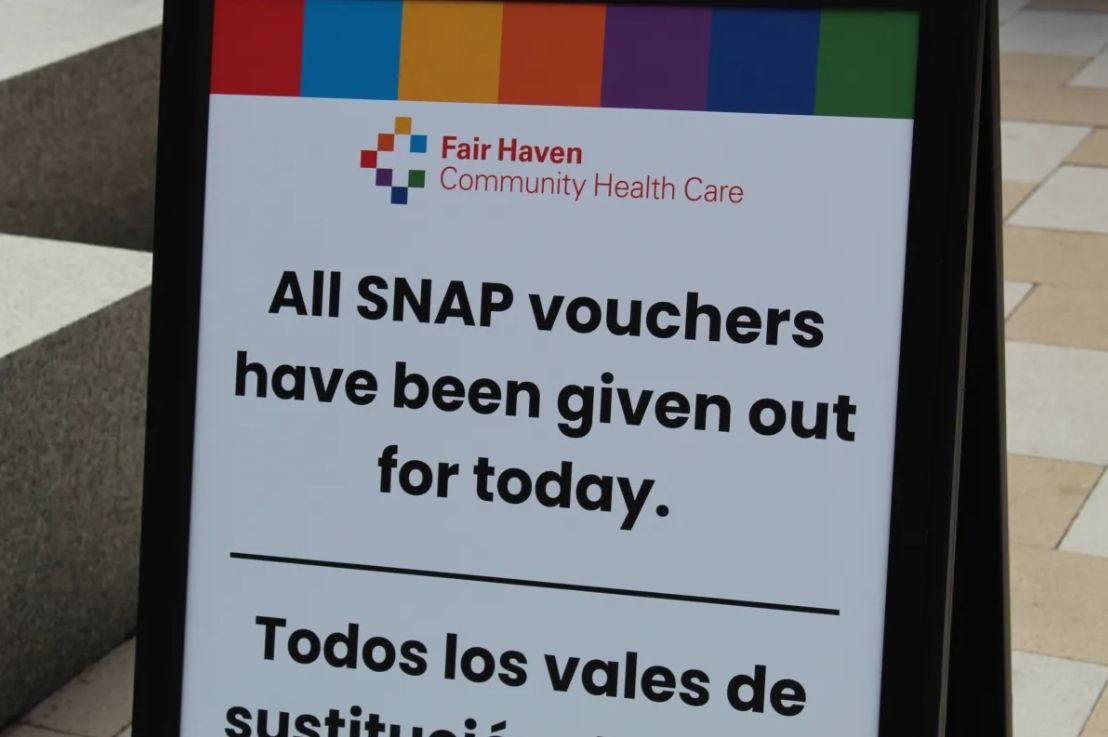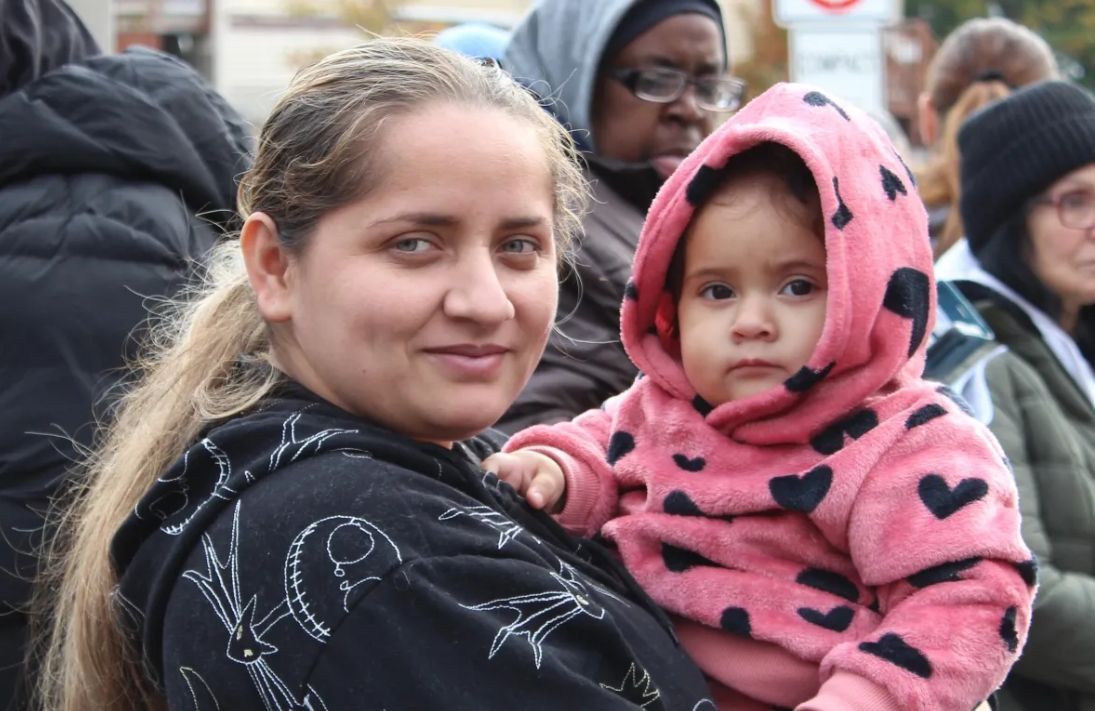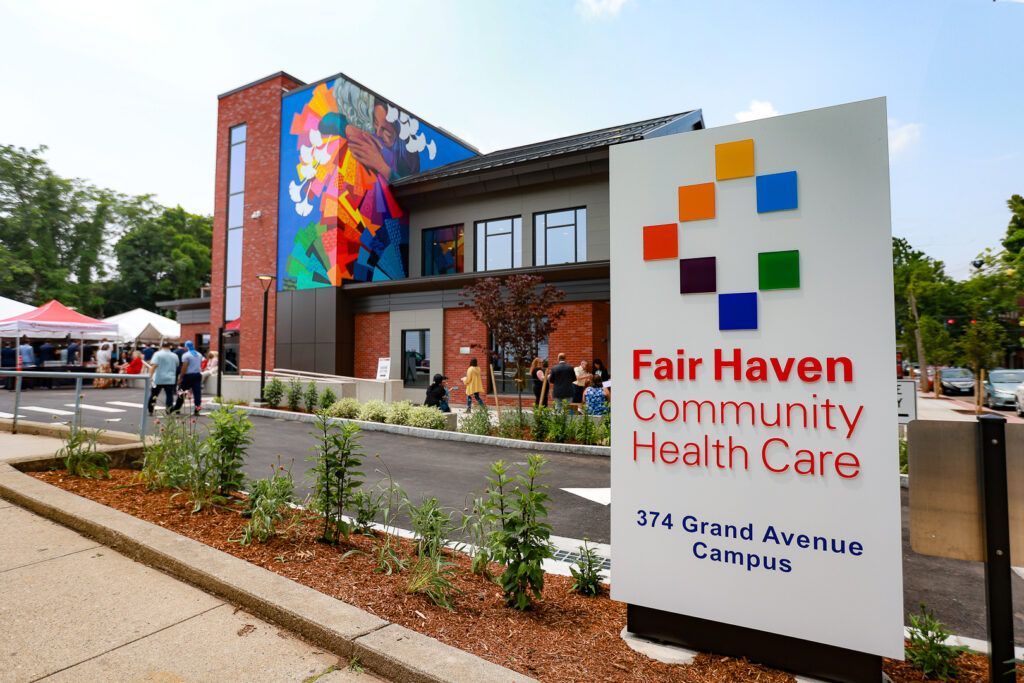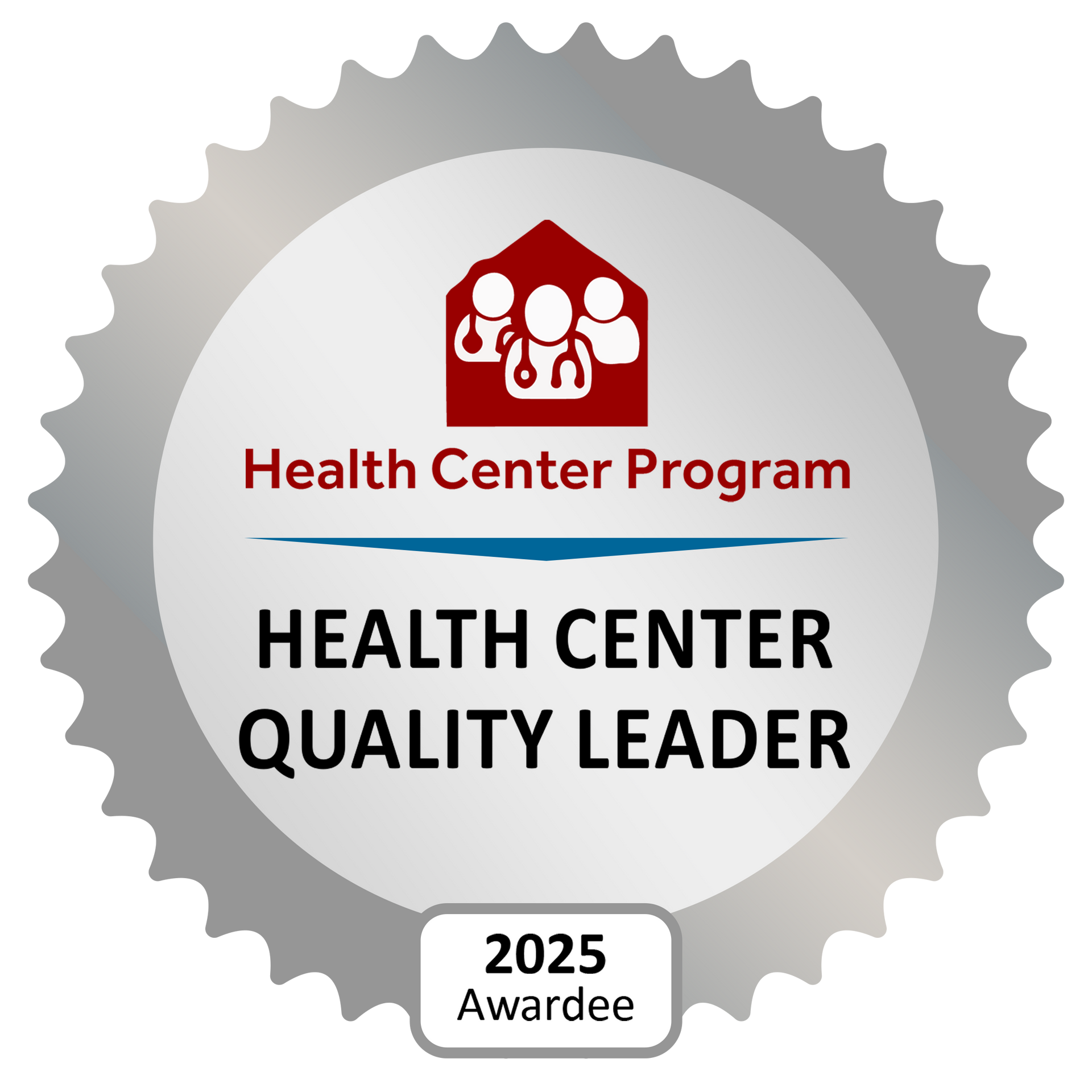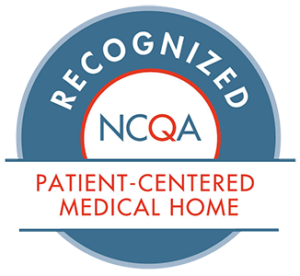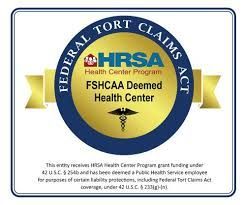Hundreds Line Up For SNAP-Gap Help
Hundreds Line Up for SNAP-Gap Help
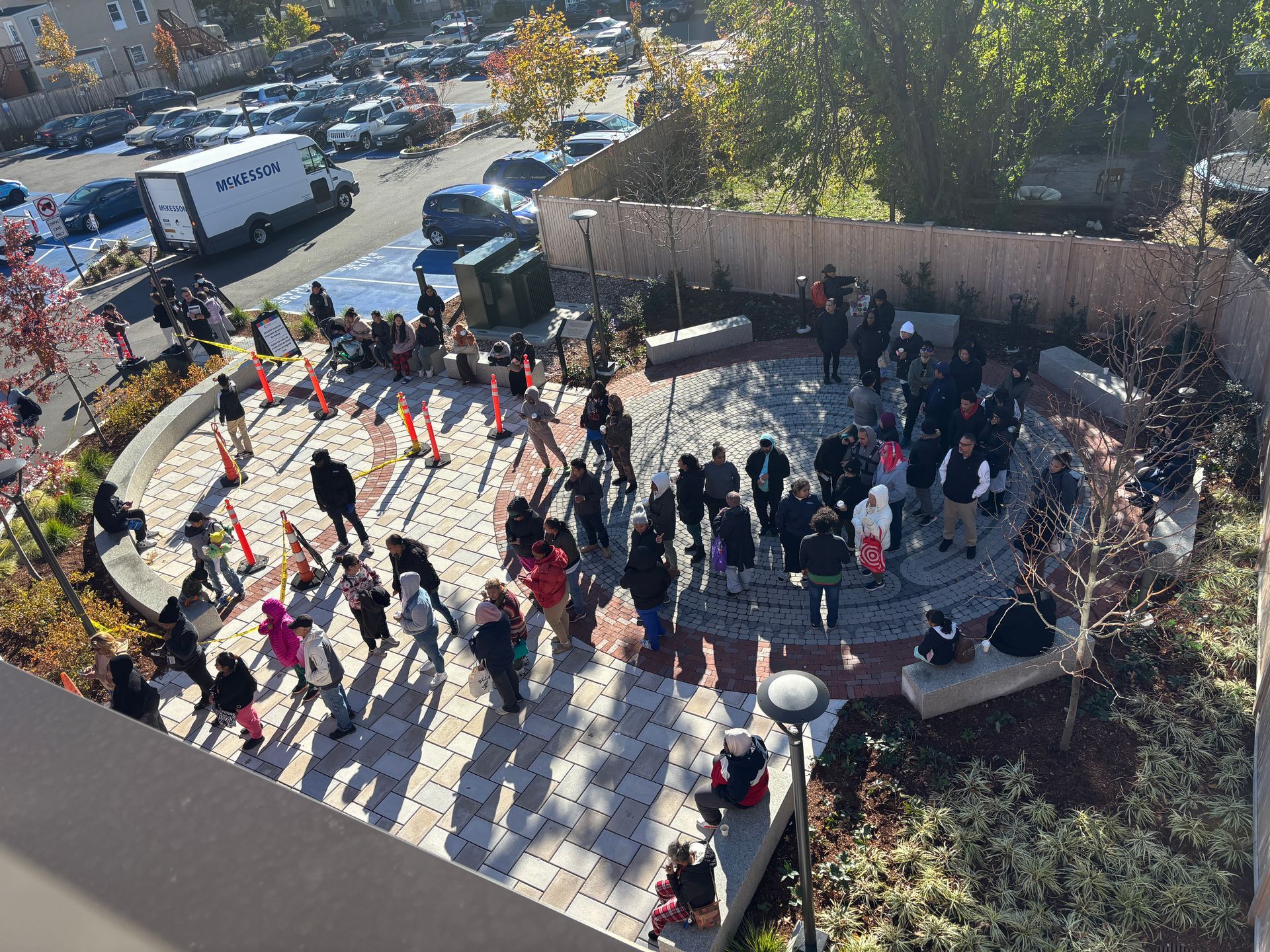
Michelle Robertson spent two hours in Fair Haven on Monday morning waiting for a $75 grocery voucher, as she needs to free enough cash to pay for the medications that treat her osteoporosis and cancer.
She was one of hundreds of food stamp recipients who turned to Fair Haven Community Health Care (FHCHC) after the nation’s largest food assistance program lapsed. To support their patients through the crisis, FHCHC is offering $75 grocery vouchers to 100 people facing food insecurity every weekday.
FHCHC is one of dozens of nonprofits across the city stepping up for the 30,750 New Haveners who receive benefits from the federal Supplemental Nutrition Assistance Program (SNAP), formerly known as food stamps.
After two federal courts ruled that the Trump administration is legally obligated to fund SNAP through the shutdown, the administration said they’d make partial payments through November but declined to say when the funds would be disbursed.
Mayor Justin Elicker issued a press release following the news, describing the step as positive but insufficient.
“It’s critical that SNAP benefits are fully funded — not only for this month, but in perpetuity. The Trump Administration needs to stop weaponizing hunger and threatening to starve children, seniors, and families,” he wrote.
Elicker said that $215,000 had been raised through the Neighbors United Emergency Response Fund, launched on Friday. “I continue to encourage individuals, organizations and businesses who have the means to donate and volunteer,” wrote the mayor. “It’s making a real difference.”
On Monday, hundreds of people lined up for a voucher at FHCHC’s clinic, located at 374 Grand Ave. Staff handed out 65 more vouchers than planned, or 165 in total, to meet the need. Even with the extra vouchers, said CEO Suzanne Lagarde, FHCHC had to turn away dozens of people and ask them to return later in the week.
Until SNAP benefits are reinstated, Lagarde said FHCHC would continue distributing vouchers — so long as they have the resources to do so.
Robertson, a born-and-bred New Havener, feels “scared” when she thinks about her finances. Her Social Security payments are usually sufficient to cover her medications, but without SNAP, she’s wondering if she’ll have to allocate some of those funds towards groceries.
She’s planning to spend her voucher at Fair Haven’s Key Foods. She’ll need to buy calcium-rich products for her osteoporosis, with the rest of her money split among inexpensive meats, vegetables, and breads. To help the money stretch, she’s planning to eat a simple soup with crackers for multiple days.
Robertson, tearing up, said, “It’s getting rough.” She wishes she could tell the government to “make peace, whatever the problem is,” or at least to “stop taking it out on us.”
After standing in line for two hours, Robertson’s body ached with pain.
A few dozen people ahead of Robertson on Monday, Katrina Tate described the “struggle meals” that she’s planning to make: spaghetti, empanadas, Chef Boyardee, and anything with rice.
She’s hopeful that she can stretch the $75 through the week, but “prices are high,” and she’ll need enough food to feed her 10-year-old godson and elderly husband.
It “helps a lot” to get relief from the voucher, she said, but she’s still facing an impossible question: “What’s more important? Paying a bill or buying food?”
The “shutdown is affecting everybody,” said Robertson, but the government “doesn’t care.” To the 42 million Americans facing food insecurity, she emphasized, “There’s no shame in asking for help.”
Amarilys Perez was one of the last people to receive a voucher on Monday. In Spanish, she said she has two children, including a four-year-old daughter with severe autism. Because of her daughter’s medical appointments, she’s only able to work three days per week.
She usually receives over $500 in food stamps per month, rarely enough to feed her family given how expensive groceries have become. Her living expenses have also risen, she said, now that she has to heat her home.
She pointed out that local grocers in Fair Haven, where the voucher is valid, tend to be on the expensive side — especially at the start of the month, when they jack up prices to take advantage of customers having just received their benefits. Several other people in line said they’d observed the same pricing pattern at local grocers.
While the whole situation is “horrible,” she said she’s trying to have a good attitude. “We’ll just wait and see what happens.” But if the shutdown lasts through the winter, she’s not sure how she’ll find the time and transportation to keep lining up for vouchers and food pantries.
“Even at the baseline,” said Lagarde, there’s “food insecurity” in Fair Haven. For her and the FHCHC, it was a “no brainer” to fund a voucher program after food stamps lapsed.
Maggie Moffett, FHCHC’s Chief Advancement Officer, agreed. “For so many of our patients,” she said, “SNAP is the difference between food and no food.”
Credit to New Haven Independent for the story. Read article here.
